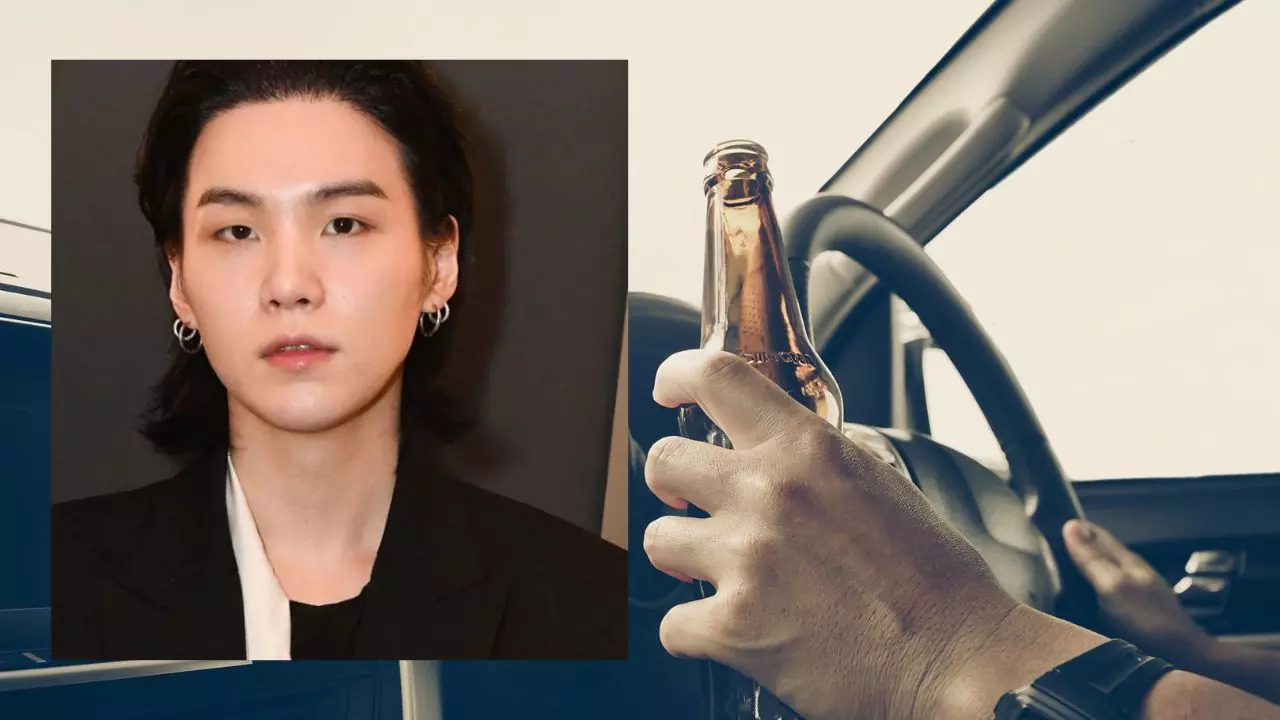Why you should not drive under the influence of alcohol (Image: iStock)
BTS’s Suga was recently caught driving an electric scooter under the influence of alcohol. Driving under the influence (DUI) is a serious crime. It’s when a person operates a motor vehicle while their blood alcohol level (BAC) is above the legal limit. The consequences of a DUI can be far-reaching, including jail time, license suspension, and hefty financial penalties such as fines and court costs. However, Suga’s DUI case gave rise to the origin of a rather dangerous challenge: #SugaChallenge.
The challenge, which has been dubbed #SugaChallenge, is totally illegal as it involves violating traffic rules by drinking and driving recklessly. Netizens participating in the challenge share a photo of themselves holding a bottle of alcohol while sitting in their car. According to many people, the sarcastic challenge was started by Suga’s fans to show their support for him following the drunk driving incident.
Why is it forbidden to drive after drinking or what exactly happens to your body?
Alcohol causes very obvious alterations in behaviour. It affects almost all the physical abilities necessary for safe driving. It can interfere with attention, perceptual functioning and motor skills, as well as decision-making while driving.
According to a study, alcohol consumption impairs driving ability and increases the risk of having an accident. “The effects of alcohol consumption on driving-related functions are modulated by several factors, such as the way of consumption (regular or infrequent), expectations about consumption, driving experience and the age of the driver. The increased risk of having an accident starts with a lower blood alcohol level for inexperienced drivers or occasional drinkers, and starts with a higher blood alcohol level for more experienced drivers or regular drinkers,” reads the 2015 study published in BMC.
What is the psychology behind drunk driving?
- Stress and negative emotions:Stress and negative emotions can impair judgment and reduce a person’s level of self-control. This can lead to risky behaviors, such as drunk driving.
- Personality traits:Often, personality traits such as impulsivity and sensation seeking can trigger dangerous behaviors in the real world, such as choosing to drive under the influence of alcohol or drugs.
- Personality disorders:A person’s personality can have a big impact on their risk of committing a drink-driving offence, research has found. People with certain personality disorders are more likely to drink-driving than those who do not have a personality disorder.
Disclaimer:
The information contained in this post is for general information purposes only. We make no representations or warranties of any kind, express or implied, about the completeness, accuracy, reliability, suitability or availability with respect to the website or the information, products, services, or related graphics contained on the post for any purpose.
We respect the intellectual property rights of content creators. If you are the owner of any material featured on our website and have concerns about its use, please contact us. We are committed to addressing any copyright issues promptly and will remove any material within 2 days of receiving a request from the rightful owner.

